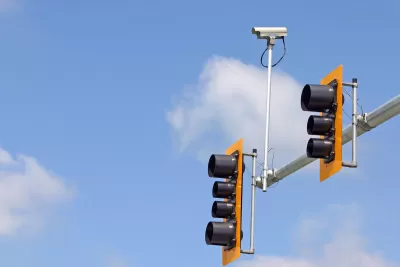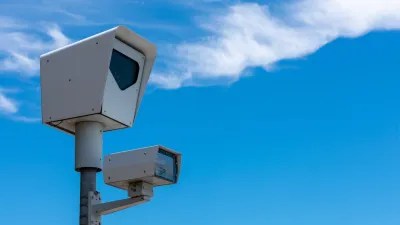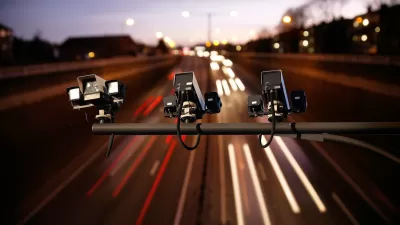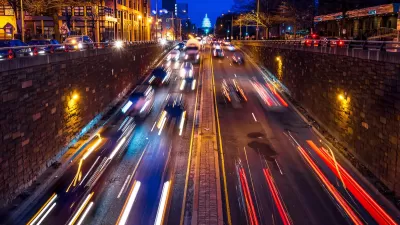Residents are wary of the new technology’s potential for surveillance, but support boosting enforcement while reducing interaction with police.

A new report outlines the opinions expressed by Boston community members in a series of focus groups that sought to understand how Black residents view the city’s road safety and traffic enforcement policies. Writing in Streetsblog Massachusetts, Christian MilNeil outlines the report’s findings.
Researcher Lindiwe Rennert, the study’s author, “found widespread agreement that the current system is not working well, particularly in Black communities, which face higher crash risks both from police violence and from dangerous roads.” But residents also expressed concern over violent interactions with law enforcement.
“The big takeaway was, cameras don’t have guns.” According to Rennert, “While there are civil liberties concerns associated with camera-based enforcement, the concern is de-escalated from loss of life, to an abuse of information. Both are important, but the scale is unquestionably different.” But participants also said new technology could set up new methods of surveillance and perpetuate discriminatory systems.
Based on the focus groups, Rennert makes some suggestions to lawmakers to implement successful automated enforcement programs: ensure fine revenues are directed to street safety and public transit, establish external oversight, limit how much cameras can see, use trusted agencies, and “right-size the penalty” to prevent outsized punishment for minor infractions.
FULL STORY: ‘Cameras Don’t Have Guns’ – Boston’s Black Community Weighs In On Camera-Based Traffic Enforcement

Alabama: Trump Terminates Settlements for Black Communities Harmed By Raw Sewage
Trump deemed the landmark civil rights agreement “illegal DEI and environmental justice policy.”

Planetizen Federal Action Tracker
A weekly monitor of how Trump’s orders and actions are impacting planners and planning in America.

Why Should We Subsidize Public Transportation?
Many public transit agencies face financial stress due to rising costs, declining fare revenue, and declining subsidies. Transit advocates must provide a strong business case for increasing public transit funding.

Understanding Road Diets
An explainer from Momentum highlights the advantages of reducing vehicle lanes in favor of more bike, transit, and pedestrian infrastructure.

New California Law Regulates Warehouse Pollution
A new law tightens building and emissions regulations for large distribution warehouses to mitigate air pollution and traffic in surrounding communities.

Phoenix Announces Opening Date for Light Rail Extension
The South Central extension will connect South Phoenix to downtown and other major hubs starting on June 7.
Urban Design for Planners 1: Software Tools
This six-course series explores essential urban design concepts using open source software and equips planners with the tools they need to participate fully in the urban design process.
Planning for Universal Design
Learn the tools for implementing Universal Design in planning regulations.
Caltrans
Smith Gee Studio
Institute for Housing and Urban Development Studies (IHS)
City of Grandview
Harvard GSD Executive Education
Toledo-Lucas County Plan Commissions
Salt Lake City
NYU Wagner Graduate School of Public Service





























